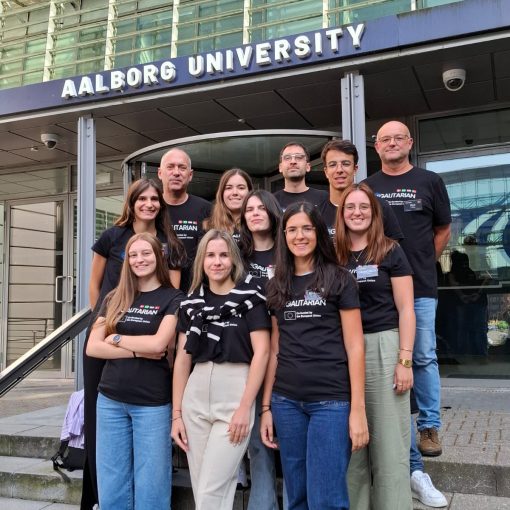 The School of Engineering and the Institute for Sustainability and Innovation in Structural Engineering (ISISE), representing the University of Minho, will coordinate the Innovative Training Network (MSCA-ITN) in Civil Engineering. This is the only project coordinated by a Portuguese entity in the engineering area in the MSCA-ITN program in the year of 2020.
The School of Engineering and the Institute for Sustainability and Innovation in Structural Engineering (ISISE), representing the University of Minho, will coordinate the Innovative Training Network (MSCA-ITN) in Civil Engineering. This is the only project coordinated by a Portuguese entity in the engineering area in the MSCA-ITN program in the year of 2020.
The network will recruit and train fifteen PhD students in multiple scientific and engineering fields in an alliance with the industry in order to train professionals who will lead the industrial transformation, towards a better understanding of materials, development of new features and inclusion of sustainability in mortars and lime coatings. The project also includes material characterization, numerical simulation of multi-physical behavior, and a performance-based approach to the project. The planned developments include capabilities such as: self-cleaning properties, (super) hydrophobicity, self-regenerating, improved CO2 capture and recycling capabilities. The interdisciplinary approach along the value chain is based on the knowledge of academic (6) and industrial (11) partners, namely lime producers, producers of mortars and coatings, and end users to define priorities related to industrial needs. These synergies will lead to impressive increases in the transfer of scientific knowledge to the lime consuming industries in the EU, ensuring their progress in social, environmental and economic aspects, as a relevant contribution to the 2030 Agenda and the United Nations Sustainable Development Goals.
The project SUBLime: Sustainable Building Lime Applications via Circular Economy and Biomimetic Approaches, with a total budget of 3.71 M €, from which 1.29 M € is part of UMinho. The consortium has renowned institutions both on the academic side (University of Minho, University of Granada, TU Delft, University of Ghent, University of Silesia and University of Darmstadt), as well as in the European industrial fabric (European Lime Association, Lhoist, Wienerberger, Instituto Andaluz del Património Histórico, Fels, Tarmac, Carbon8, European Mortar Industry Organization, Carmeuse and Danish Technological Institute, Sievert). The project is coordinated by Paulo B. Lourenço, with the support of Miguel Azenha and João Pereira.



